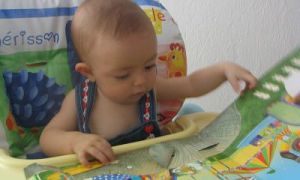

In recent years, the early childhood education and care sector has faced a troubling rise in fraudulent qualifications, a threat not only to professional integrity but also to the safety and wellbeing of children. From forged certificates to unaccredited training providers, the issue has triggered national investigations and sweeping reforms.
When unraveling whether a candidate has shortcut their Early Childhood Education (ECE) training, structured interviews and targeted questions can expose gaps in real-world competence. Fast-track or “vacation” pathways have raised alarm after thousands of candidates completed diplomas and graduate qualifications in months—sometimes with no genuine workplace experience and questionable oversight.
The Australian Skills Quality Authority, in collaboration with HumanAbility and sector partners, has released updated guidance to strengthen how early childhood education and care students are assessed during workplace placements. This article unpacks the key elements of the guidance, highlights unacceptable practices, and offers best-practice recommendations for registered training organisations and ECEC services.
In New South Wales, a disturbing trend is emerging: early childhood education students are paying thousands of dollars for contract cheating services—outsourcing assignments to third parties, often via encrypted platforms like WhatsApp. Some are reportedly using these fraudulent qualifications to fast-track visa approvals and bypass the very training meant to prepare them to support, nurture, and educate our youngest citizens.
Thousands of educators entered the field armed with certificates but short on competence. Driven by profit motives and migration incentives, several education providers offered one-year diplomas with minimal oversight and limited practical learning. This is not just a compliance issue—it’s a moral imperative. The following article provides strategies on how the sector can rebuild quality and credibility.
In a sweeping move to restore integrity to Australia’s vocational education and training (VET) sector, the Australian Skills Quality Authority (ASQA) has revoked an estimated 10,700 that were linked to early childhood education and care in late 2024. Providers like Luvium Pty Ltd and Gills College were found to have issued credentials without proper training or assessment.
Australia’s early childhood education sector is facing a crisis of confidence, with a growing number of insiders warning that fast-tracked qualification courses are putting children at serious risk. A recent investigation by ABC’s Adele Ferguson and Chris Gillett has exposed a troubling trend: education providers, driven by profit and immigration incentives, are flooding the sector with underprepared graduates—many of whom lack the skills, understanding, and commitment necessary to ensure children’s safety and well-being.
Here are some effective study planning techniques and tools to support students in staying organized and productive. This article provides information on Study Planning Techniques, Study Planning Tools, How To Manage Multiple Modules In A Cluster, Week By Week Study Plan, Daily Study Schedule Example, Weekly Study Breakdown Example, Study Tips While At Work and more.
A: A jotting observation is a concise and informal way to document significant events, behaviors, or interactions. These observations are typically brief, focusing on specific moments rather than a sequence of events. They provide a snapshot of a child's interests, development, or skills and can be recorded in various formats, such as notebooks or post-it notes.
There are a significant number of educators undertaking study to gain formal qualifications. There is also a need for educators in the early childhood workforce, who are undertaking study, to feel supported to strive to achieve their career goals and remain in the workforce. Leading Learning Circles for Educators Engaged in Study is designed to assist pedagogical leaders in supporting educators in their service who are undertaking study. The following article provides information on What Is Leading Learning Circles for Educators Engaged in Study, How Does This Helps Educators Who Are Studying, How To Get Started, Roadmap To Get Started, Reflective Questions, Examples Of Connecting Theory To Practice and Leading Learning Circles for Educators Engaged in Study Resource.
 Whether you are doing a Cert 3 or a Diploma traineeship or thinking about doing a traineeship it’s a good idea to understand what wages… Read More
Whether you are doing a Cert 3 or a Diploma traineeship or thinking about doing a traineeship it’s a good idea to understand what wages… Read More
 Work placement is an excellent opportunity for you to prepare and gain insight into the early childhood industry as well as help you to clarify… Read More
Work placement is an excellent opportunity for you to prepare and gain insight into the early childhood industry as well as help you to clarify… Read More
 Are you thinking of starting a traineeship in childcare? Well from personal experience, working in this child care industry brings great fulfilment and satisfaction. Watching… Read More
Are you thinking of starting a traineeship in childcare? Well from personal experience, working in this child care industry brings great fulfilment and satisfaction. Watching… Read More
 There is no truth to the rumour that the certificate III or 'actively working towards' will be phased out.
Read More
There is no truth to the rumour that the certificate III or 'actively working towards' will be phased out.
Read More
 For educators looking to update their qualification and have the required knowledge, experience and skills instead of completing assignments and tasks to complete a qualification… Read More
For educators looking to update their qualification and have the required knowledge, experience and skills instead of completing assignments and tasks to complete a qualification… Read More
 As a student finding information and doing research is an important part of completing assignments. Once you find the information you need to complete the… Read More
As a student finding information and doing research is an important part of completing assignments. Once you find the information you need to complete the… Read More
 Being a student and completing assessments can be a hard task. Especially when you don’t understand what the question is, you have to write an… Read More
Being a student and completing assessments can be a hard task. Especially when you don’t understand what the question is, you have to write an… Read More
 As you take the next big step and decide to continue studying you need to decide whether you will be able to manage working at… Read More
As you take the next big step and decide to continue studying you need to decide whether you will be able to manage working at… Read More
 Hiring overseas educators can not only bring a service the benefits of a diverse, multicultural workplace but also address staffing shortage issues. However before an… Read More
Hiring overseas educators can not only bring a service the benefits of a diverse, multicultural workplace but also address staffing shortage issues. However before an… Read More
 Making the decision to study is a big one. It can be stressful, thinking of how you're going to complete assignments or if you're going… Read More
Making the decision to study is a big one. It can be stressful, thinking of how you're going to complete assignments or if you're going… Read More

Babies use of language at this stage changes so much that it's hard to notice...
See more...
Whether you are doing a Cert 3 or a Diploma traineeship or thinking about doing...
See more...
Phonological awareness covers the child’s ability to recognize and use the spoken parts of sentences...
See more...© 2009-2025 Aussie Childcare Network Pty Ltd. All Rights Reserved.

